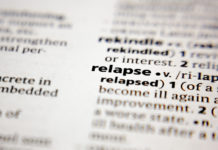Connecticut State in Mental Health Denial
The recent July 9th Ct. Mirror article, Children Stuck in Crisis, accomplishes the intended purpose of deceptively convincing the people of Connecticut that there’s a severe mental health services crisis in the state. On the surface, the article’s author provides a compelling scenario of the state’s youth failing to get the needed mental health care and forced to rely on emergency room services. The problem with the presentation is the failure to address a key piece of information in the reported mental-health-crisis-puzzle – the increased psychiatric drugging of Connecticut’s children.
Publication Bias and Meta-Analyses: Tainting the Gold Standard with Lead
For decades the gold standard for medical evidence was the review article - an essay looking at most or (hopefully) all of the research on a particular question and trying to divine a general trend in the data toward some conclusion ("therapy X seems to be good for condition Y," for example). More recently, the format of review articles has shifted - at least where the questions addressed have leant themselves to the new style. The idea has been to look at the original data for all of the studies available, and in effect reanalyze them as though the research participants were all taking part in one gigantic study. By increasing the number of data points and averaging across the vagaries of different studies, a clearer finding might emerge. The meta-analysis has gone on to be revered as a strategy for advancing healthcare. It has vulnerabilities.
Three Suicides: Honoring Lives Lost to Benzodiazepines
I am still trying to reconcile what these chemicals are capable of, how the urge can morph into an action, how we maybe just don’t understand suicide all that well. For me, the suffering was so intense it was too painful to stay alive. I understand how my friends felt in their last moments.
Review of the Conference on Withdrawal and Side Effects: IIPDW
The online conference Withdrawal From Psychiatric Drugs was held on Friday May 6th and 7th. Here we summarize each of the speakers' points.
Please Respond to the New York Times: “What Should Be Done to Prevent Mass...
As I write this, the New York Times is asking readers to respond to the question “What should be done to prevent mass shootings?” The more responses the New York Times receives from people who understand that the answer is gun control — not misguided legislation that would only harm those it purports to help — the more they will take notice. Please write!
The American Journal of Psychiatry’s Answer to MIA: A Silence that Speaks Volumes
The American Journal of Psychiatry will not be retracting the fraudulent STAR*D study.
Announcing the Mad in America Continuing Education Project
The Mad in America Continuing Education Project is preparing for takeoff after months of planning. The project will provide on-line classes on the full range of psychiatric medications, and the ways in which they affect the neurology, physiology and outcomes for people taking them. The overarching goal is to change the standard of practice so that it becomes consistent with well-designed research.
What Does ‘Relapse’ Mean? Definitions Used in Antipsychotic Trials Are Unclear
Antipsychotic drugs are prescribed on the basis of trials that demonstrate a higher rate of ‘relapse’ in people who are withdrawn from these drugs compared to those who continue to take them. Yet, incredibly, there is no consensus about what ‘relapse’ means in this situation.
The Murphy Bill, HR 2646 — a Heinous Piece of Legislation — is Coming...
The National Coalition for Mental Health Recovery is calling upon all people of like minds, who care about individuals who need mental health services, to ACT. It is urgent. Please call your representative in the House of Representatives to vigorously oppose HR 2646 on Tuesday, July 5, 2016. And, call your Senator to insist that the Senate reject any amendments or changes to mental health legislation from the House by Friday, July 8, 2016. For more information about this Call to Action, please click here.
The Dangers of Precision Medicine: Mental Health Is Not a Battlefield
Rather than a war to be fought within individuals, we should envision mental health as a garden to be carefully nurtured.
Six First Steps for Building Communities of Emotional Wellness
I am being asked by a number of grassroots communities to facilitate a dialogue about how they can better welcome and support individuals who experience emotional distress. This is a challenge for many aspiring peers and allies in a culture where responsibility for our individual well-being has been increasingly transferred to psychiatrists, doctors, and other health professionals.
Classism in Disguise
For everyone who goes on psychiatric drugs, the reason comes back to power imbalances in their personal life. Women who's husbands “make all of the money” and have an unequal share of the power, kids who's parents have power over them—frequently people who have less money and security, therefore less platform for authority than those around them. Mental illness is not in fact an illness but an unequal division of power and sense of security in a social group.
French and American Approaches to “ADHD”
It now looks as if the U.S. approach to mental health is fast gaining purchase in a country that formerly boasted a great, perhaps too sophisticated (Lacan et al.) psychoanalytic tradition, but also a holistic psychosocial tradition when dealing with psychological disturbance in children.
Changing the World and Other Extreme Sports
By Dani, Director at Afiya
For anyone who’s unfamiliar, Afiya is the first peer-run respite in Massachusetts and it is one of only about 18 in the country. It’s no surprise, then, that people are confused about how we do things. But, it’s not just confusion. I’ve come to realize there is actual defensiveness that arises at times when we talk about what we do at the house. If I’m wearing my activist hat, this can be supremely annoying.
Fact-Checking the General Counsel in the Markingson Case
Ever since critics began asking questions about the death of Dan Markinson in a clinical trial at the University of Minnesota, the General Counsel for the university, Mark Rotenberg, has responded with a uniform message: the case has already been investigated many times, and no wrongdoing has ever been found. That's how Rotenberg responded to my article about the case in Mother Jones, and that's how he responded last week to the news that the Board of Social Work had issued a “corrective action” to the study coordinator for the clinical trial in which Markingson died.
Doctor Munchausen, I Presume!
In 2000 when I gave a lecture on "Psychopharmacology and the Government of the Self" at the invitation of the University of Toronto, I ran into a problem. In the public domain our shared difficulties were because of this lecture. In fact, the difficulties stemmed from a member of the Establishment – Charlie Nemeroff – who put the frighteners on the U of T about hiring Healy. 'The psychopharmacology establishment in the face of adverse effects from drugs' is the same as 'the medical establishment in the face of treatment-related adverse effects' is the same as 'the British establishment in the face of allegations of paedophilia and child abuse' is the same as 'the Vatican in the face of allegations of abuse.' It’s about power. We have it – you don’t. Get lost.
“The Overdiagnosis of ADHD”
The general theme, that various "mental illnesses" are being "overdiagnosed" is gaining popularity in recent years among some psychiatrists, presumably in an effort to distance themselves from the trend of psychiatric-drugs-on-demand-for-every-conceivable-human-problem that has become an escalating and undeniable feature of American psychiatric practice. But the implicit assumptions – that there is a correct level of such labeling, and that the label has some valid ontological significance – are emphatically false.
Questions About Jeffrey Lieberman’s “Notorious Past and Bright Future of Psychiatry”
I just attended my first American Psychiatric Association (APA) meeting even though it has been going for 168 years. I was invited to join a symposium on vitamin-mineral combinations as primary treatment of psychiatric symptoms. There was one talk I decided to attend, not because I was particularly interested in the topic, but because it would give me an opportunity to ask Jeffrey Lieberman a question.
The Power of Storytelling
Over the years, I have heard many powerful recovery stories. I’ve also had many opportunities to share our family’s struggle with mental health challenges and our recovery journey.
Black Movement Leaders: Lost & Found
As some of us get caught up in lamenting the whiteness of our movement, we are actively losing the stories of Black leaders.
I Wonder if There is Some Axis II Going on Here? Further Thoughts on...
This blog was prompted by an invitation to do a guest post on the site of one of my favorite bloggers, 1 Boring Old Man. This is my response to the notion that there are certain conditions - Schizophrenia among them - that correspond more directly to biomedical conditions
Randomized Controlled Trials of Psychiatric Drugs Tell of Harm Done
The most important data in an RCT is not whether the drug provides a statistically significant benefit over placebo. The most important data is the “number needed to treat” calculation (NNT). For the person considering taking an antidepressant or an antipsychotic, the NNT data provides the “math” needed to weigh the potential benefit of taking the drug against the potential harm of doing so.
What Is Biological Psychiatry? Part 2: Anatomy of Power and Control
The evolution of psychiatry in the recent era has to be carefully examined in connection to its strong links to the U.S. economy, especially the meteoric rise in the pharmaceutical industry, as well as other geo-political developments in the world, including increased governmental control and forms of repression in post 9/11 America.
What COVID-19 Has to Teach Us About Psychiatric Oppression
The answer to DJ Jaffe’s question as to whether or not forced incarceration in psychiatric facilities leads to fear of psychiatric facilities (or of reaching out for help in general) is an obvious one. Yet, it is important that we find ways to use this opportunity to draw the connections in bold, impossible-to-miss lines, and turn this crisis into a learning opportunity that might actually help move psychiatric oppression out of the shadows of the unknown and into the light.
Insane Medicine, Chapter 6: Neoliberalism and the Compare-and-Compete Society
Neoliberalism teaches people that suffering has nothing to do with the inequality they experience, but that it comes from their own individual failures of body and mind, and requires "experts" to identify and treat it.



















